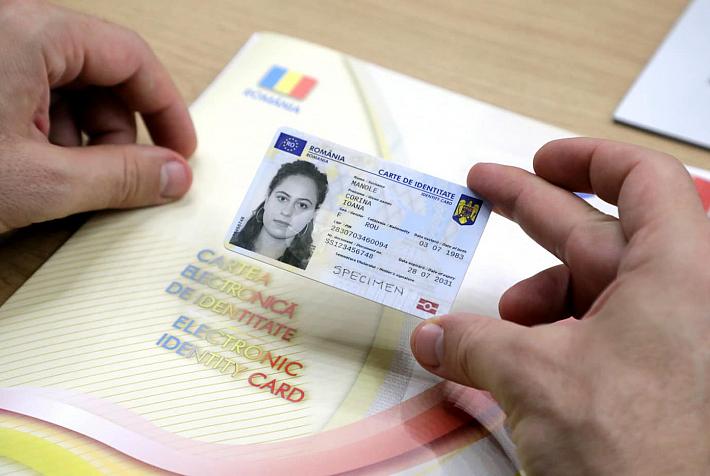Romanian film review – Breaking records: Transilvania International Film Festival 2017

The Transilvania International Film Festival, in short TIFF, has become an unmissable event and for many, the month of June and Cluj wouldn't be the same without it. The festival's sixteenth edition ended last Sunday and the country's biggest film fest broke new records, having sold almost 100,000 tickets and counting roughly 1,200 Romanian and international guests.
The Romanian Days were, as usual, reliably exciting, with an army of national filmmakers storming the city for those days of the festival week. “The Romanians are coming” is the most current phrase you'd hear before the section kicks off each year on Thursday. And they are indeed, as filmmakers, industry professionals and ticket-buyers flock to Cluj. The (mostly) sold-out venues and the lively discussion rounds after the screenings are proof that the industry is alive and kicking, despite the acute problem of financing cinema in this country.
The Romanian Days include a mix of already released and new titles competing for the Romanian Days trophy. The winner is, unsurprisingly, Radu Jude's exquisite Scarred Hearts/Inimi cicatrizate, a visually rapturous period film. Other already-awarded titles include Adrian Sitaru's lean, thoughtful The Fixer/Fixeur; Andrei Dăscălescu's audience darling Planeta Petrila/Planeta Petrila; Cosmin Bumbuț and Elena Stancu's relevant, moving The Last Kalderash/Ultimul căldărar; Gheorghe Preda's eye-opening, fascinating Camera Obscura; and Călin Peter Netzer's multi-awarded troubled love story Ana, Mon Amour. An honourable mention also goes to Șerban Georgescu's endearing, earnest and ultimately heartbreaking Cabbage, Potatoes and Other Demons/Varză, cartofi și alți demoni. In an experiment to try to find out what is costs to plant potatoes and cabbage in the country's most prolific area for these crops, near Bucharest, Georgescu moved to the countryside and did just this. What he discovered about why agriculture is a failing business in Romania makes you want to hit your head against the back of the seat in front of you, a not illogical consequence of communism-indebted thinking, but just as infuriating. You'll never look at your cabbage the same way again.
Out of the premieres, it was mostly the documentaries that had looked most promising, and the impression proved right. I saw Radu Jude's The Dead Nation/Țara moartă as work-in-progress this spring, just like Claudiu Mitcu and Ileana Bârsan's The Trial/Procesul. Now screened in their final forms, the former is outstanding and the latter very strong, also breaking the record for the longest discussion after a film, which lasted no less than 2.5 hours. Another remarkable production (and much-awaited) was Alexandru Solomon's brilliant (and brilliantly titled) Tarzan's Testicles/Ouăle lui Tarzan, having a most bizarre subject: a research centre in Abkhazia founded in the 1920s by a Russian scientist who wanted to create a human-ape hybrid.
The features, although less impressive than the docs above, were interesting pieces: Alexandra Bâlteanu's promising debut Prowl/Vânătoare, Dan Chișu's family reunion dramedy The Anniversary/Aniversarea, and Iulia Rugină's thriller Breaking News. Out of the section and competition, but also a new Romanian film (in co-production with France, Canada, and the US), was Radu Mihăileanu's epic, time-hopping The History of Love/Povestea iubirii. The short films were less exciting than last year, and the only standout was also the winner of the section, Adrian Silișteanu's Written/Unwritten (Scris/nescris), a sensitive story of a Roma family confronted with state bureaucracy.
Particularly moving were the homage screenings of Romanian classics, such as Cristian Nemescu's beautiful California Dreamin' (Endless), in the presence of the-one-and-only Armand Assante, also starring in the new Romanian horror flick The Wanderers (if you were lucky enough, you could meet Assante on his strolls around the city; one of many TIFF's charms).
The screening of the director's cut of Mircea Săucan's The One Hundred Bill/Suta de lei (1973) was particularly emotional, not only because it gathered all its four leads on stage, but also because its own tragic story: the film upset the communist censorship authority so much that it ordered its rolls to be burned; they could be saved, thankfully, but one of its producers died from a heartache in the turmoil of the huge scandal. A wonderful film and – like everything that Săucan did – unmistakably experimental and unique in Romanian cinema.
That being said, I've not only started counting the days to TIFF 2018, but also to the following months, in which most of the titles above will be released theatrically. The first one is The Story of Love, so stay tuned for its review in a few days.
Ioana Moldovan, columnist, ioana.moldovan@romania-insider.com
(photo source: TIFF website/Nicu Cherciu)












